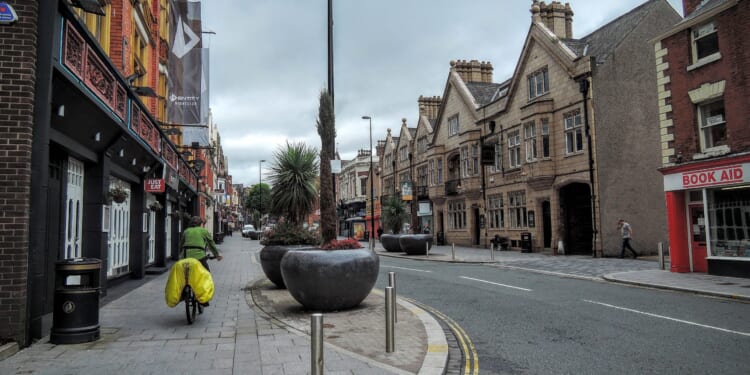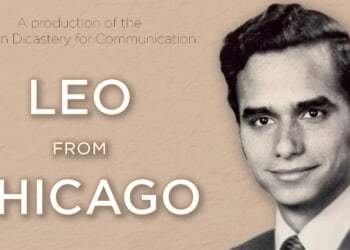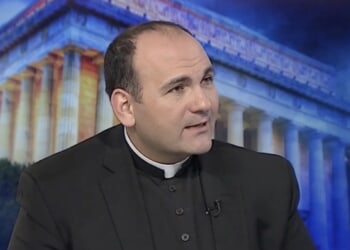Ben Fletcher is Chief Financial Officer of The Very Group, and has just been selected to be the Conservative’s mayoral candidate for Cheshire and Warrington.
Cheshire is the spiritual home of mayoral devolution.
George Osborne, as a Cheshire MP, championed the idea as a means of getting more money and power across England and unlocking the potential of the North, in particular.
He also understood that visible leadership was essential both to represent an area across the country and internationally, as well as a means of corralling local government, businesses, and wider civic society to work together to improve lives within a combined authority.
What started with a focus on our large cities has now become a fixture of our local government arrangements. I’m delighted that the government plans to introduce a combined authority covering Cheshire and Warrington in 2027. It’s the final piece of the jigsaw in bringing mayoral devolution to all of the North West.
However, eight years on from Andy Street and Ben Houchen winning their mayoralties, and 17 years since Boris’s first win, there is still some debate within our party as to whether mayors add enough value, and I know some of my Cheshire and Warrington colleagues wonder: do we need one?
I’m an optimist about the role mayors can play for our party: as practical deliverers, policy innovators, and party renewers.
One of the factors that contributed to last year’s devastating loss was the sense that we had given up on governing. Expanding the number of Conservative mayors will help us correct this view. Wherever there is a Conservative mayor, things happen. No surprise that Andy Street and Ben Houchen significantly outperformed the party in 2024.
Mayors can take the baseline funding agreed with government and use that as seed money to attract further investment to improve infrastructure, get homes built, revitalise towns, and enhance skills.
As a starter for Cheshire and Warrington, £22m a year will be made available, and this can be leveraged into much more. To be effective the investment opportunities need to be considered at a geographic scale that sits above, and complements, that of a council. Ben and Andy together have brought in billions of pounds of private investment across Teesside and the West Midlands.
I also know from my own experience on the board of some great retailers – Boots, Clarks, The Very Group – as well as ten years on the board of the British Retail Consortium, that it has become exasperatingly difficult to deal with Whitehall. Meetings with ministers often feel performative, the pace is sluggish, the outcomes opaque. No wonder companies like INEOS and Merck are pulling investment. Mayors have a bias to action and can help rebuild our reputation for effective ‘JFDI’ action.
The context is critical.
It is not possible to overstate the scale of the fiscal crisis facing the country. There are four compounding issues: the ballooning cost impact of demographic change, the end of a near 60-year trend of reducing defence expenditure to compensate, a tax system that is now so defective it disincentives growth, and a welfare system that enables inactivity.
I truly believe that only our party is equipped – intellectually, and in terms of resolve – to meet this challenge.
What it does mean is there is not going to be any more money – for a very long time.
In the commercial world, scarcity is seen as the mother of innovation, and the same opportunity exists with mayors. They need to be policy innovation leaders, trialling new ideas that can be scaled across the country. The work Conservative mayors do should allow a new Conservative government to come to office on day one with proven approaches that can make a rapid difference.
In Cheshire and Warrington I want us to crack housing. I want my children to be able to own a home before their mid-30s, and the average house price in Cheshire being 7.8x the average salary is economically and socially indefensible. The only way to rejuvenate our great towns such as Crewe, Macclesfield, Ellesmere Port, and Warrington is to deliver beautiful density as part of properly integrated town plans that deliver the services and infrastructure that goes alongside. Where necessary, mayoral development corporations should be used to speed the process and give the certainty that attracts investment.
As executive political leadership roles, a well-known, effective mayor, can have public cut-through and win more converts to the Conservative cause.
We know that our party needs renewal – more funding, more professional support on the ground, revitalised councillors, activists and members. We also need to rebuild our relationships with local businesses, charities, and community groups. Working closely with councillors and MPs, mayors can spearhead this effort, building a long-term position to the benefit of the whole party.
I believe in the power of mayors to make a difference.
So much so I’m prepared to trade the well-paid anonymity of the board room for a chance to make a real difference to the place I’m proud to call home. Mayors can get cracking from day one with money and powers and have the chance to innovate and test new approaches. It’s a natural start point in making the transition from corporate to public life.
And to my colleagues in Cheshire and Warrington I’d say: lets take the plunge with confidence.
We live in part of the UK with so much potential. I don’t want Andy Burnham and Steve Rotherham to be the only voice from the north, seen to speak on our behalf. A Conservative mayor – working closely with councillors – can attract investment, build homes, enhance communities. In short, make it easier for every person in Cheshire and Warrington to achieve the good life.
That’s an aspiration worth fighting for.


![Scott Bessent Explains The Big Picture Everyone is Missing During the Shutdown [WATCH]](https://www.right2024.com/wp-content/uploads/2025/11/Scott-Bessent-Explains-The-Big-Picture-Everyone-is-Missing-During-350x250.jpg)













